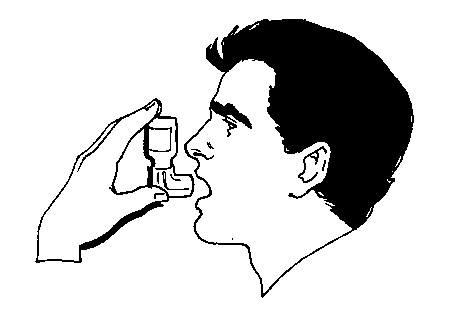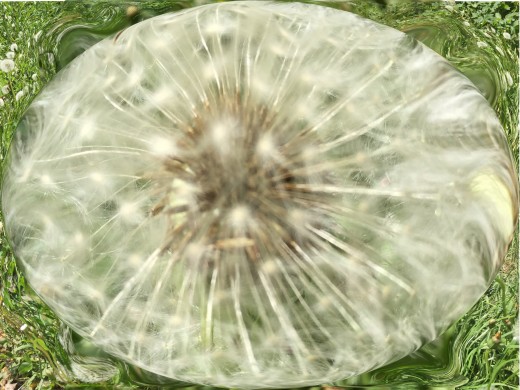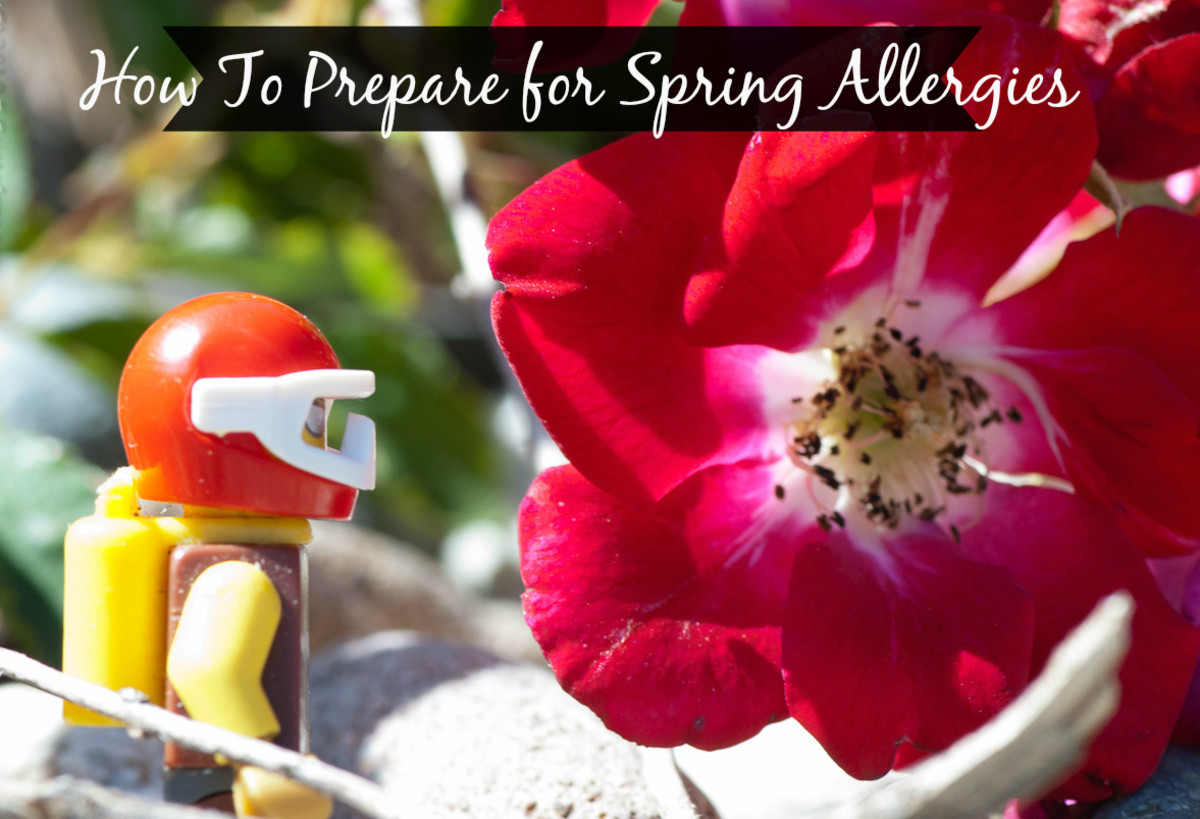How to Deal With Allergies?

What is Allergy?
Allergies were discovered at the beginning of this century when they became associated with inflammation. Understanding how allergies work helps dealing with them. The core issue with allergies are necessary restrictions that need to be implemented on a daily basis. With allergies on the rise, much knowledge is needed to prevent symptoms such as hay fever symptoms also called allergic rhinitis caused by contact with specific substances.
There are many types of allergies. Apart from allergic symptoms such as coughing, sneezing, mucus production or even shortness of bread, allergic reactions can also lead to skin allergies. There are also other health problems associated with allergies such as toxic molds.
Allergies can develop at any age and require different approaches with regards to their causes. There are constantly new developments in this area, but the first steps in dealing with allergies are practical measures that involve removing their causes. There are also various medications that alleviate symptoms but fail to provide a cure.

What Causes Allergies?
Allergies can run in families and may be hereditary. They can start during childhood through the exposure to factors such as pets, although there is also evidence that pets may protect from developing allergies.
Allergies develop when we cross a threshold where our immune system becomes so sensitive that it reacts causing swellings or a runny nose. Allergies occur in Western countries more often than in other countries that is allegedly caused by too clean environments and lack of exposure to various bacteria. The emergence of allergies now is also associated with the use of more chemicals and antibiotics. They can also be triggered when our organisms are not familiar with certain chemicals and react defensively. Once allergic to certain substances, a person may then develop other allergies as well.
Too high levels of hygiene and not enough bacteria is attributed to allergy development. Such findings are not conclusive.
Although allergies tend to be prevalent, certain allergies such as shellfish allergy occur more frequently among African American than white people.
The most common are food allergies, although dust and mold allergies have more serious consequences. Common allergies in relation to food are caused by milk, eggs, soy, peanuts, fish, and shel,fish. There are also not so common allergies such as strawberry allergy or sun allergy.
Many people may react adversely to dairy products without realizing that they have a dairy allergy. It is caused by sensitivity to sugars in milk. Dealing with dairy allergy involves avoiding dairy products and other derivative products.
Nickel allergy can manifest after becoming sensitive to this element in foods that include cocoa, chocolate, tea, baking powder, red kidney beans, mackerel or tuna. It can also occur in soil, plant tissues and certain drinks. The first step in dealing with nickel allergy is to adopt a low nickel diet.
Another controversial allergy that is associated with yeast may fail to recognized by general practitioners. Yeast sensitivity symptoms vary, so only naturopathic doctors should deal with yeast infections. Yeast allergy is also associated with sensitivity to yeast and should be consulted with natural medicine practitioners. Yeast allergy may also occur as a result of eating products that contain yeast.
Certain environments are more conducive towards developing allergies. Parents, in particular, should be cautious about mosquito bite allergies that may have symptoms similar to other allergies.

Allergies and Asthma
Although allergies may seem to be not as threatening as other diseases such as cancer that seems to be absent in those who have allergies, they can lead to other health problems such as asthma, where similar approaches are undertaken when dealing with it, such as avoidance of its triggers. Just like with allergies, asthma sufferers should avoid colds, changes in temperatures, smoking, dust, strong doors, and certain allergens, such as pollen, pets, and dust mites.
The same substances that trigger allergies also trigger asthma and avoiding and treating allergies may also prevent the development of asthma. Allergies are often associated with histamine release, where antihistamines are prescribed, but they can have also unwanted results. The incidents of asthma increased in the Western world three times.
Those who have allergic asthma should avoid animal dander, dust mites, cockroaches particles, pollen, and mold. Asthma attacks can be fatal, just as it is the case with some allergies.
Asthma can also be triggered by an allergy to cats. Cat allergy is not necessarily reduced through exposure to cats but can cause respiratory problems.
Dust and Dust Mite Allergy
Dust mite allergies are more common in humid and warm climates. They can also develop in conditions that are warm and humid. Dust allergy symptoms manifest through runny, itchy nose and high fever. The best solution is to remove the breeding source of this condition. This problem is also aggravated when a person suffers from asthma.
What makes some people more sensitive to various elements is questionable. Pollution in the environment may contribute to the problem. Excessive exposure to certain elements triggers adverse reactions. Too many pollutants may also eventually increase sensitivity, leading to adverse reactions. Knowing the pollen count in the air is crucial for those with dust or pollen allergies. Healthier environments, in general, tend to reduce allergies.
Allergy Symptoms
Symptoms of allergies differ. Some allergens can lead to asthmatic symptoms with coughing, sneezing, shortness of breath as well as mucus production.
One of the most controversial allergies is a wheat allergy that involves exposure to wheat with symptoms such as headaches, eczema, hives, asthma or even arthritis. Wheat allergy symptoms may involve anaphylaxis similar to allergies associated with exercise. Wheat that is given to early to children may lead to food sensitization.
Food allergy symptoms may have quite severe reactions such as vomiting, abdominal pain or difficulties with breathing. Food that tends to cause allergies and needs to be avoided includes eggs, milk, peanuts, soy, wheat, and fish. Symptoms of gluten allergies can be similar to other types of food allergies that may affect breathing, swelling and stomach pain, but also include anemia, skin lesions, and neurological symptoms. At times, only itching occurs when eating a certain food.
Certain symptoms such as gluten allergy symptoms may be not obvious, as they relate to gastrointestinal problems. They are also one of the most controversial issues involving allergies.
Sinusitis is associated with allergies because sinus infection can be triggered by allergies. Sinusitis symptoms involve a runny nose and resemble cold. Medications that provide sinusitis relief are available, but the underlying allergy causes should be also addressed.
Exposure to Mould and Allergenic Food
Exposure to mold can cause allergic reactions. Mould, i.e. fungus that breaks down material is everywhere, both indoors and outdoors. Outdoor mold can be found on logs, leaves, grass, and grains. In food, it leaves green and white spots, but its roots can run deep while also coexisting with various bacteria. Only certain molds, such as those found on cheese are non-threatening. Those found in yogurt are not dangerous to health except for people with a weak immune system.
Molds that contain mycotoxins can pose danger to our health. They can survive even cooking and cause various infections. Allergic reactions, including mold allergy symptoms, may include a runny nose, watery eyes, and skin rash, but it may also be more serious. Those who have an allergy to pollen may also have a mold allergy. Mould allergy can have various severe effects. The only way to avoid these health problems is by avoiding mold.
Allergy to food can trigger various life-threatening reactions. When food intolerance is present we need to eliminate the food that causes it. It often includes eggs, milk, peanuts, soy, wheat, and fish. One of the most common allergies is an allergy to milk, followed by an allergy to peanuts and eggs. When exposed to allergens a person may experience abdominal pain and vomiting. Some foods may cause less severe reactions such as itching.
Allergies often develop to the foods ingested by children early during their growth. Nut allergies are rising rapidly among children. Exposure to nuts in food can result even in death, but there is a high likelihood of outgrowing such allergies. Their symptoms may affect breathing, skin, and gastrointestinal tract. They may occur within seconds or within one or two hours. Some children may grow out of it while others have to avoid eating peanuts.
Although there is no peanut allergy cure, there is a connection between peanut allergy and the strength of the immune system. Some studies suggest that nut allergy cure may be as simple as introducing tiny amounts of nuts into a diet. In a similar way, egg allergy usually resolves in one in two cases in children by the time they attend a primary school.
Latex allergies are associated with fruit allergies in such a way that allergy to fruits can trigger latex allergies or following fruit allergies latex allergies develop. As with other allergies, the only cure is to avoid latex or products containing latex, such as detergents.
Food allergies tend to coincide with other types of allergies. In this way, banana allergies are often connected with latex allergies and tomato allergies often occur with pollen allergies.
Skin Allergies
Allergies can be a nuisance especially if they become visible and appear on the skin. Skin allergies are not only difficult to cope with but also aesthetically unpleasant. Rashes that appear out of nowhere on your body are often puzzling as to what causes them. It may take some time to discover the sources of such allergies, and only through eliminating these sources we eventually recover. Allergies can be caused by substances such as fragrances, jewelry, including gold and nickel as well as various ingredients included in some cosmetics. It may take time to unravel what is behind these type of skin problems.

Allergy Medications
Western medicine provides medications that relieve allergy symptoms but no allergy cure. This illness is triggered when an immunoglobulin E created by the immune system releases histamines after being exposed to an allergen. Histamines cause flu-like symptoms and common medications for allergies involve antihistamines. Individuals react differently to medications that should be tried and tested for specific conditions. Sometimes overmedication can lead to kidney problems, so drugs should be applied with caution.
Allergies require approaches that may be complex. Dealing with allergies is necessary, as untreated allergies lead to more complications, chronic sinusitis that may then develop into other serious health conditions.
Medical approaches provide allergy relief by removing allergy triggers and alleviate symptoms. Natural remedies may address health deficiencies if applied appropriately. The first step should be to determine if an allergy exists and do a test. Many people are unaware that they have an allergy. If dust allergies are untreated they may become serious requiring sinusitis treatment. This condition also should not be treated with antibiotics.
Home remedies for allergies encourage the strengthening of the immune system through foods that include herbal teas. They are particularly helpful for seasonal allergies.

Seasonal Allergies
Natural Remedies for Seasonal Allergies
Seasonal allergies can provoke serious health issues if untreated, such as problems with sinuses that can lead to other complications. Seasonal allergy symptoms are similar to cold and include a runny nose, sneezing, itchy eyes, and sinus congestion, but last much longer. While colds last for a week seasonal allergies can stay in the system for a month or longer.
Allergy sufferers should know when allergy season starts and when it ends that is usually in spring, but can also be harmful towards the beginning of summer. Pollen allergies have been frequently associated with asthma. Higher pollen levels are also more prevalent with climate change.
Recently also noted allergies in children's eyes or ocular allergies when eyes become red and itchy can be associated with allergic conjunctivitis, but it can also be a sign of a more serious condition of atopic conjunctivitis or vernal conjunctivitis that is also associated with asthma or eczema.
Symptoms of seasonal allergies can be alleviated with medications such as Claritin or Zyrtec, but herbal remedies for allergies can be more effective, as they strengthen the immune system without side effects. Green tea contains natural antihistamines while dark honey can also assist in treatment.
There are many remedies for allergies to pollen associated with pollen allergy season that begins towards the end of summer. Foods such as omega-3 fatty acids are good pollen allergy remedies. Garlic, horseradish or chili are effective for quick clearing of sinuses. You can also consider appropriate immune strengthening teas.

How to Treat Allergies?
The most common medical allergy treatment is immunotherapy through injections with small doses of the allergen. Such treatment seems to reduce allergic reactions. With increased doses, patients become more tolerant and eventually shots can be stopped. It can also lead to various side effects.
The only solution for allergies recommended by medicine is to avoid allergens, although building better immunity is also important. This can be achieved with immune builder teas listed below, good nutrition as well as herbal medicine.
The most effective allergy home remedies are immune building teas. Those with allergies and asthma can also benefit from sports activities. Fitness strengthens lungs thus improving asthma conditions if excessive exercise is avoided. It can also assist only those who are not allergic to physical exercise and as such is recommended by PubMed as reducing various asthma symptoms. Cold weather can trigger adverse reactions in those with allergies and also should be avoided.
Natural Allergy Remedy
There are many approaches to treat allergies naturally. One approach involves eating foods that alleviate allergens. Research shows that a natural histamine is vitamin C, hence foods with this vitamin can have less aggravating effects. Eating more vegetables that have cleansing effects can also improve the way our system deals with harmful elements. Such measures also improve the immune system.
Natural supplements for allergies can be used to treat allergies. Probiotics are known to prevent various food allergies, as they help in maintaining the healthy intestinal tract. Such natural remedies also involve vitamins and fermented foods.
Acupuncture for Allergies
Some studies indicate that appropriate acupuncture in asthmatic children led to the reduction of symptoms. Such acupuncture needs to continue and it is also recommended that other therapies are also present.
Healthy Environment
Certain aspects such as floor type affect those with respiratory issues. Rather than carpet floor, it is recommended that either floor boards or tiles are used, as they improve breathing problems.
Also flowers such as fig tree or ficus clear the air from pollutants, also ensuring that those with various allergies or respiratory issues feel better.

Other Ways of Dealing with Allergies
Some argue that allergies are the result of a toxic build up in our bodies. Despite the ability of our system to cleanse itself, certain metals and chemicals resist such removal that accumulates in various parts of our body. Understanding our connection to nature, where different seasons affect differently our system can assist in providing cleansing when it is needed.
Detox can begin with eliminating processed foods and eating more vegetables. It can also involve drinking more water. There are also other quick detox methods. You can read more in Detox and Health.
Video on Dealing with Allergies
Food Allergy Remedies
Natural Remedies for Allergies
Food allergies can be part of symptoms such as itching and swelling in intimate parts, skin rashes, fatigue, sinusitis, and headaches that are part of Candida Yeast Infection. Those who experience allergies should verify if they don's suffer from such infection first.
Natural remedies for allergies involve mostly immune system strengthening remedies that can be obtained when drinking herbal teas or taking vitamins and supplements.
Home remedies for seasonal allergies apart from drinking tea such as peppermint tea containing antibacterial and anti congestive properties can include food such as fish or mushroom.







